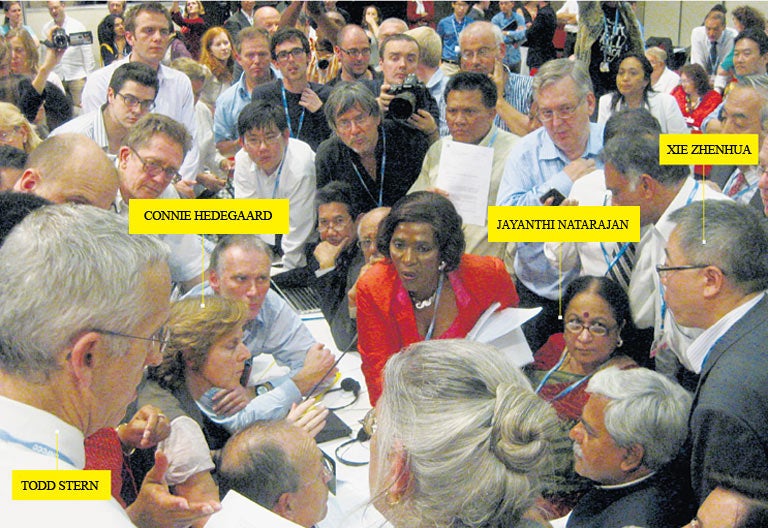
Your support helps us to tell the story
From reproductive rights to climate change to Big Tech, The Independent is on the ground when the story is developing. Whether it's investigating the financials of Elon Musk's pro-Trump PAC or producing our latest documentary, 'The A Word', which shines a light on the American women fighting for reproductive rights, we know how important it is to parse out the facts from the messaging.
At such a critical moment in US history, we need reporters on the ground. Your donation allows us to keep sending journalists to speak to both sides of the story.
The Independent is trusted by Americans across the entire political spectrum. And unlike many other quality news outlets, we choose not to lock Americans out of our reporting and analysis with paywalls. We believe quality journalism should be available to everyone, paid for by those who can afford it.
Your support makes all the difference.Right up to the last minute, the danger was that the Climate Change Conference in Durban would end in fiasco or in an agreement so vague as to be meaningless. Instead, when hopes of a global deal looked dashed, European nations – acting with a degree of unanimity over climate change that seems absent from their deliberations on the eurozone – pulled off an agreement that gives new cause for optimism.
The dilemma facing the summit was how to unite the economic goals of fast-developing countries such as China and India to the environmental agenda of the Western countries that signed up to the Kyoto Protocol in 1997. That treaty bound its signatories to significantly cut carbon emissions measured against a 1990 baseline, and it expires in 2012. As the Foreign Minister of little Grenada put it: "If there is no legal instrument by which we can make countries responsible for their actions then we are relegating vulnerable economies to the whims and fancies of beautiful words."
Now, at least, we do have the promise of a legal instrument because China and an even more recalcitrant India in the end agreed to a 2015 deadline to sign a global climate change treaty that will take force by 2020.
Some will say that pushing the deadline for a treaty back to 2020 is another excuse for inaction for several more years. But getting the emerging economic superpowers of the East and South to agree to commit even in principple to a legally-binding climate treaty in a few years' time is an enormous advance on the position now. Simply keeping the arrangements made at Kyoto alive for a few more years was irrelevant. China, India and the US, none of which signed Kyoto, alone now account for almost half the world's carbon dioxide emissions.
As the summiteers returned home, the temptation was to put the thickest of glosses on what had been agreed. Durban "saved planet earth for the future of our children," said Mate Nkoana-Mashabane, the Foreign Minister of South Africa, which hosted the summit. That is still questionable. What we have is a road map leading towards a global treaty. Every effort must be made to ensure that this treaty becomes reality.
Join our commenting forum
Join thought-provoking conversations, follow other Independent readers and see their replies
0Comments